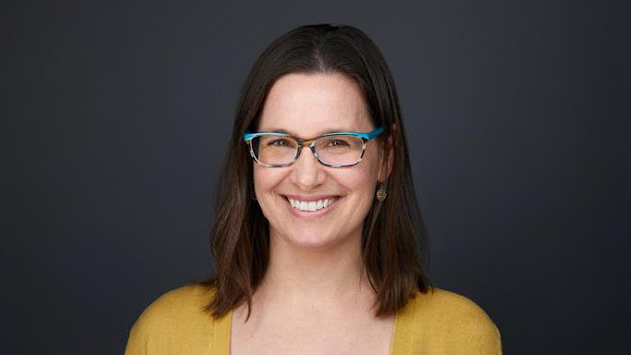Monique Charest hopes her research will lead to raised awareness of developmental language disorder in children and better understanding of its assessment and development.
Shirley Wilfong-Pritchard - 20 March 2023

Monique Charest
Monique Charest is an associate professor in the Faculty of Rehabilitation Medicine’s Department of Communication Sciences and Disorders. She trained as a speech language pathologist (SLP) at Indiana’s Purdue University and has worked as an SLP in both community and hospital settings. She received her PhD in audiology and speech sciences from the University of British Columbia in 2012 and is registered as an SLP with the Alberta College of Speech-Language Pathologists and Audiologists and certified with the Speech-Language and Audiology Canada and the American Speech-Language-Hearing Association.
What is your area of research?
My area of research is broadly focused on children's language. I study language development and how to assess language disorders. Right now, we're working on a project that’s trying to understand what language development looks like for preschool and school-aged kids with early language difficulties.
I also study the dynamic steps involved in producing language — how children find words in the moment of speaking and figure out how to put them together in sentences. This involves looking at things such as reaction times and how the pieces of the language-production system all work together.
I got into this research from a combination of experiences — what I was exposed to in my master's degree at Purdue University and working as an SLP. When I was training to be an SLP, I completed a thesis that was focused on understanding language patterns in preschoolers with language disorders, and what it might tell us about the nature of their difficulties. I thought it was going to be a one-off before I focused on being an SLP. But it became the dangling carrot, because you do your study and you get one small answer, but you also get 25 new questions.
Were there any faculty you were particularly interested in working with when starting at the University of Alberta?
Phyllis Schneider, who worked a lot on language, literacy and development in terms of children's abilities to tell stories, was a really great colleague who supported me through my early years when I landed here. There were also exciting things being done by other faculty in other areas where we could make use of new technologies together. When I was just about to join the faculty, Esther Kim reached out about a grant that she was writing to buy an eye tracker, and that's actually something I've used to study children's eye movements while they are planning and producing speech.
Where do you see your research going in the future?
I'm interested in language development in general, but also in something called developmental language disorder (DLD). This is when children have really significant difficulties with learning language and with using language, but there's no cause that we can point to clearly.
Where I see the research going is to help raise the profile of DLD, and help us understand DLD assessment and development. One project we’re working on is to try to understand the path of development of really young kids who are struggling with language. One of the questions we have about possible DLD with kids who are really young — three and four years old — is to what extent is that likely to be a long-standing issue? Can we figure out how to predict who's going to have longer-term difficulties?
Which elements of your work do you find the most rewarding?
I think it's hoping to contribute to something we struggle with as SLPs, which is getting folks to understand the place of language in our development, our interactions, our well- being and our successes in life. Then, with that understanding, making sure there can be adequate services for children.
What do you find frustrating about your work?
My biggest frustration is recruitment. We have this great idea and we want to help, but where do we find the families? How do we communicate with them? How do we navigate all the access channels? Sometimes you end up a little bit exhausted before you've really even collected any data, because it is challenging to find the children.
What would be your main piece of advice for graduate students?
This is going to sound obvious, but study things that interest you and try to hold on to that piece of why you wanted to do this work. The research is always just a few steps away from being something that can be put into practice, but just remind yourself of the end goal and realize you’re achieving short-term goals on the way there.
If you could do any profession other than your own, what would you like to do?
I often think that I would love to work in city services — specifically, planning public spaces for people to be together, where families can get together. I would be interested in an aspect of urban planning aimed at community building, giving people a space to enjoy being together.